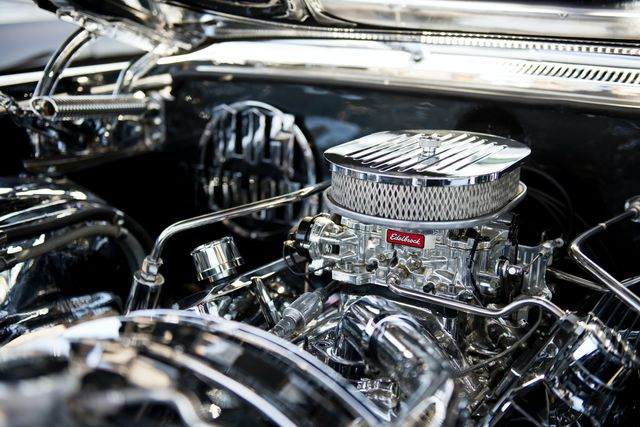There must be a method for continuously measuring the road speed in every vehicle we operate. The transmission’s output shaft measures road speed, and speed sensors calibrate it accurately. When compared to factory-installed components, the sensor’s precision is high.
Where is my speed sensor location after the transmission
A transmission speed sensor is situated close to the transmission’s output shaft. Located where it can pick up the rotation and speed of the shaft, the Ford transmission speed sensor can then communicate this information to the engine computer through the wires linked to it.
A set of sensors continuously monitors your vehicle’s transmission speed. Also, to fine-tune its performance use the engine’s internal computer by changing various settings.
BMW transmission speed sensor location
A transmission’s speed sensors in BMW for both the output and input shafts are placed in the transmission pan. The transmission input sensor is towards the pan’s front, while the output sensor is near the back.
Allison transmission speed sensor location
Some transfer case models have one sensor, while others have two. On the transfer case’s rear will locate both of them. The transfer case’s tail shaft will be where they are mounted. A device with two sensors will have one on the left and the other on the right.
Mini Cooper transmission speed sensor location
The speed sensor is located on the right side of the transmission. Inspect the device for a side-mounted plug-like component. The length of the speed sensor is around 3 inches, ending in a plug-and-play electrical connection.

Functions of transmission speed sensors
The output transmission speed sensor location in your car’s gearbox is crucial to the engine’s and transmission’s smooth functioning. One locates on the input shaft and the other on the gearbox’s output shaft in most current vehicles. These sensors operate together to report the gear ratio to the powertrain control module (the computer that controls the engine and gearbox).
Together with information from other onboard sensors to determine when to change gears, fine-tune the machine, and operate the cruise function. Inaccurate or slow shifts, broken cruise control, and inaccurate speed readings are possible results of faulty sensors.
A broken transmission speed sensor is easy to detect and replace, but you should be familiar with using a multimeter to assess voltage to make an accurate diagnosis. If not, have a professional mechanic inspect it.
Where is my speed sensor location after the transmission ford f-150
Ford F-150s have a vehicle speed sensor (VSS) installed on the transmission’s back. It is a sensor for determining the output of the gearbox or axle. The gearbox will often rev more than usual when the VSS sensor malfunctions before shifting gears. The gearbox shifts into overdrive very slowly, if at all, and occasionally, the vehicle never makes it there. Another possible symptom is a malfunctioning speedometer and loss of cruise control. If your automobile has a faulty sensor, you may be able to drive it to the shop, but you shouldn’t risk going any further.
How to replace a transmission speed sensor location
The speed sensor is the part of the car that keeps tabs on how fast the gears in the gearbox are moving. The sensor alerts the driver whenever it senses a variation in velocity. When the speedometer transmission speed sensor location manual stops operating or is inaccurate, it is usually because the speed sensor has broken. The magnetic coil speed sensor is an attachment to the gearbox. It would help if you swapped out the sensor immediately so you can keep tabs on your speed no matter where you go.
Step 1
Leave your Ford alone for at least half an hour somewhere flat.
Step 2
Raise Ford’s front end on some jack stands so you can get beneath it. The speed sensor is located within the gearbox, which requires you to lower the device inside.
Step 3
Look for the speed sensor beneath the car. The Ford gearbox sensor is at the unit’s back, on the driver’s side. A magnetic item with an electrical hookup, the sensor is installed by screwing into the transmission. If you need more assistance, please see your owner’s handbook.
Step 4
Remove the electrical connection. To disconnect the link from the sensor, push the tabs on each side and pull. The sensor no longer needs to be taken out. Remove the sensor from the gearbox using a wrench to twist and loosen it. Remove the sensor by pushing it straight out of the gearbox.
Replace the existing velocity sensor. Set the sensor where it should be for the transmission to work. Twist the sensor clockwise with the wrench until you can’t twist it further to secure it. Connect the new sensor to the power source using the provided plug. It set up the sensor. To exit the car, slide out from beneath it. Bring the jack down gradually. Once again, the sensor is operational.
Transmission Speed Sensor Replacement Cost
The price to have a transmission speed sensor replaced at a repair shop or dealership might range from $100 to $250 or more.
However, if feasible, it would be your financial advantage to replace it yourself.
Transmission speed sensors may range in price from $80 to $300 or more, depending on the car’s make, model, and year. The DIY equivalent of a professional repair would be the cost of a sensor, which ranges from $20 to $100. The average cost to replace a vehicle’s speed sensor is between $25 and $45.
Conclusion
An externally mounted, clipped by tiny bolts, or threaded-in transmission housing speed sensor is relatively easy to repair in a Transmission Vehicle. Even if you replace the transmission speed sensor, your car still doesn’t show the correct speed, so you may need to investigate the speed sensor.
After attempting these steps, a technician should inspect the transfer case if the problems continue.

